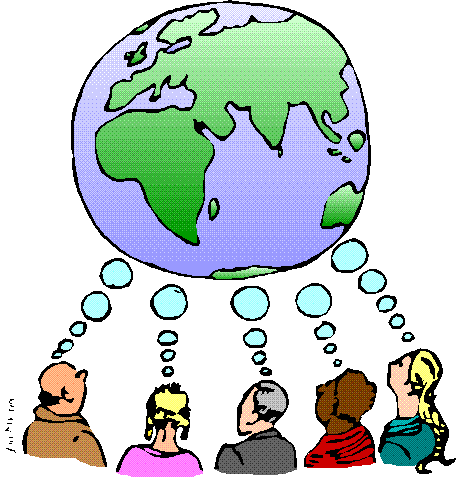

|
Your Most Trusted Source of Foreign
News and Views About the United States
|
By Thierry de Montbrial
September 21, 2005
Original Article (French) ![]()

The tragedy of Hurricane Katrina will have profound consequences on a number of time scales. Though the temptation remains strong to focus on the short term, I would start by examining the long term, that is to say on the level of one or two generations, beyond which any attempt at prediction is impossible. What this catastrophe has reminded us of is the smallness of not only individuals, but of human societies in general, before the forces of nature. The truth is that not a single year passes without something happening to make us aware of this: hurricanes, earthquakes, tidal waves …
But most of the time, these dramas unfold
in the third world, the victim of all evils. The recent tsunami of December
2004 was an exception, not territorially, because the affected zones are
a part of the third world, but because of the elevated number of victims
from rich countries. With Katrina, it is the richest country in the world,
the only superpower on the planet, with its staggering superiority both
economically and militarily, that fate has struck. And this country has
found itself as disabled, as powerless as
The first is a universal truth: faced with the brutal urgency of a complex situation, a human society’s ability to react is the measure of its degree of preparation. This is true for natural catastrophes like Katrina or the tsunami in December, but also for wars. For example, because the Yugoslav civil war in the 1990s was not as predictable as the crumbling of the Soviet Union that caused it, the international community was caught off guard. It thus found itself incapable of reacting quickly and in an orderly fashion, which gave rise to the horrors that followed.
Second lesson: natural disasters will
continue to occur, independent of human cause, particularly with the movements
of the earth’s crust or climatic changes; but it is highly likely that
anthropic disasters, that is to say involuntarily provoked by human activity,
will multiply. Certainly nothing can prove that Katrina belongs in this
category. This drama should be considered a warning, in particular for
countries like the
Therein lays a true challenge for the
governance of the planet as a whole: globalization entails a multiplication
of problems, the solution for which can only be global. Since the
Finally, the third lesson: the reactions to natural catastrophes as well as possibly preventing them should be considered international problems - problems on a global scale. This is true not only for upheaval in the earth or atmosphere, but also for problems such as pandemics (AIDS). That is the long term. Learning new means of political organization will take time because this is a matter of addressing problems without evident solution on any level. Their level of complexity is no less, for example, than conceiving of and sending a manned mission to Mars. But the conquest of space can be extended over several decades without problem, while coming generations will not likely pardon us negligence toward our own planet.

Let’s talk about the short term. On the
level of American domestic policy, the immediate effect of Katrina is clearly
to destabilize George W. Bush’s second term. He could pay the price for
his errors during the midterm elections in 2006. From the point of view
of international policy as a whole, the consequences concern the global
economy and the ability of the
Even before Louisiana and Mississippi found themselves turned upside down, American involvement
in
Today, American citizens can see that
not only are their boys mobilized in
In
As for the global economic situation,
the horizon is darkening. The hike in oil prices has not, up to now, significantly
slowed American growth, which continues thanks to the always-impressive
dynamism of
Who can believe that a macroeconomic shock of this amplitude will have no effect, in terms of a slowdown of growth and a return to inflation, or even more likely, to a combination of the two? As always in a democracy, pocketbook issues weigh especially heavily during electoral cycles, and add yet another level of uncertainty in terms of the 2006 Congressional elections.
George W. Bush has before him three full
years to preside over the destiny of
What will come of the great debate that
this nightmare has triggered in the